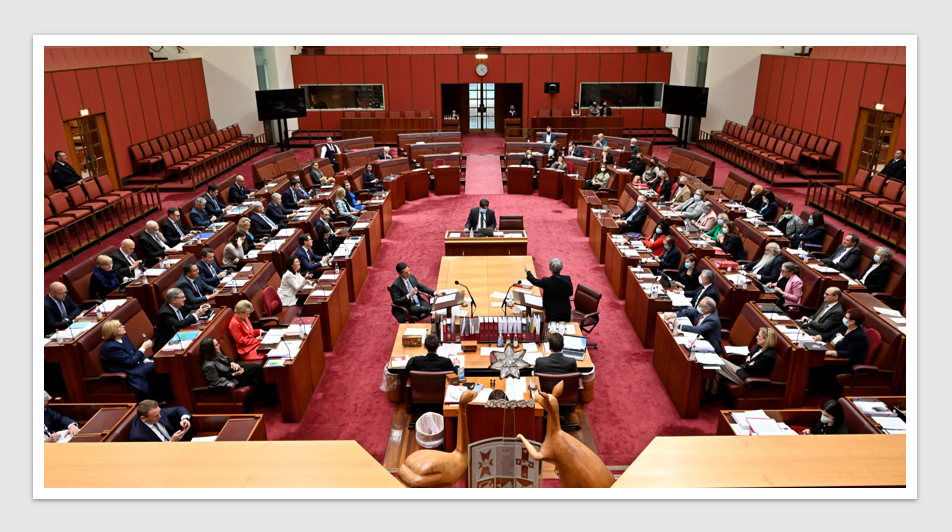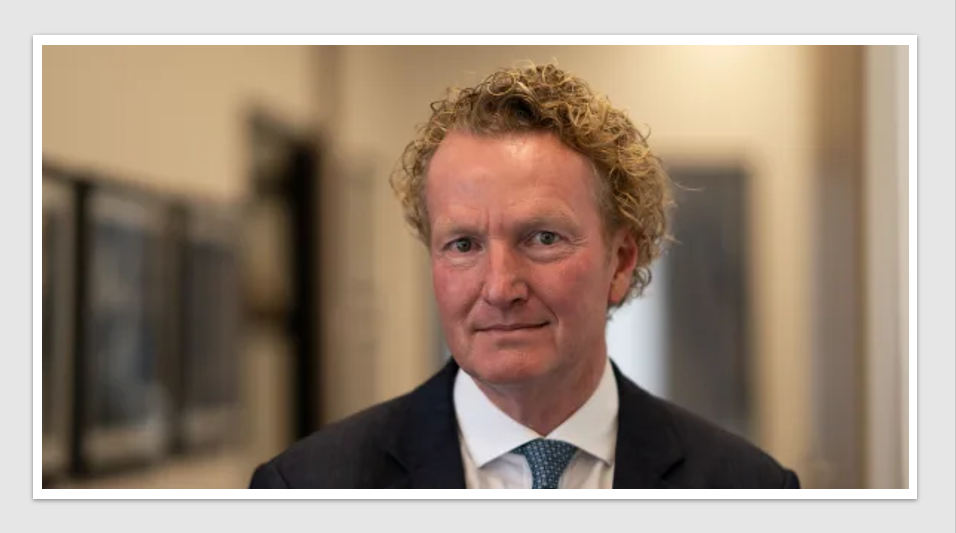Leadership & Management
Political chaos: Parliament’s scathing reality check and the urgent cry for reform

Leadership & Management: A scathing critique of Australia’s political system was delivered by Professorial Fellow of the University of Canberra and journalist Michelle Grattan AO, at this year’s Speaker’s Lecture at Parliament House, where she highlighted systemic failures and the urgent need for reform.
In a strikingly candid address, Ms Grattan dissected the disillusionment pervasive among the public towards politics, emphasising how the current system fails to meet the expectations of the nation.
“We have a distrustful and disillusioned electorate, a professionalised political system that frequently alienates the sort of people we should be attracting into parliament, a public service that has been found wanting and an excessively secretive approach to information and accountability,” Ms Grattan lamented.
She stressed the erosion of trust in politicians and political institutions, resonating with the sentiments echoed in the 2023 Edelman Trust Barometer.
“For a well-functioning democracy we need people to have a fundamental belief in the system, the integrity of its component parts, and how those who operate it behave. On the other hand, people should be sceptical enough to question the system, advocate for major or minor reforms, and call out faults or dysfunction in it. It’s a balance. If scepticism moves into total cynicism and to alienation, a democratic polity will lurch into disaster,” Ms Grattan observed, underscoring the fragility of trust within the system.
The political journalist spotlighted the changing demographics and political attitudes, noting the shift in power as millennials and Generation Z become the largest voting group, signalling evolving values and expectations in the electorate.
Addressing the decline of major political parties and the rise of independent candidates, Ms Grattan highlighted the fading support for traditional parties and the emergence of community-focused representatives, urging a shift in the approach to attract new talent into politics.
“Those ordinary people who are attracted to politics (but don’t aspire to be MPs) want a feeling of agency. Today’s political activists can be mobilised by specific causes, by the prospect of being heard, by the opportunity to feel personally involved and making a difference. The use of the term ‘voice’ by community candidate groups captures the sentiment. These activists also often want politics to be different, to be better,” she stated.
Ms Grattan was critical of the parliamentary system’s shortcomings, particularly in relation to parliamentary question time, citing its unproductive and often hostile nature, calling for a more constructive and civil approach.
She commended the importance of the Senate committee work, which serves as a check on governments, but also highlighted deficiencies in top-down control affecting ministers’ responses and accountability.
“This year parliamentarians in various committee hearings did remarkable digging on PwC and the other consultancies; they also put strong pressure on Qantas, as well as delving into the government’s performance in rejecting the bid for Qatar Airways to be allowed more flights. Committee work gives the backbenchers involved a chance to shine. Labor’s Senator Deb O’Neill, Greens’ Barbara Pocock, and the Nationals’ Bridget McKenzie have done notable work recently,” she commented.
The journalist further criticised the public service, describing its decline in capability, independence, and moral values over the years, calling for a revitalisation of its core values and an end to excessive compliance with political agendas.
“In the Audit Office’s 2022-23 annual report, the Auditor-General had some sharp words for public servants: ‘Upholding the ethical values of the public sector requires compliance with all relevant laws and acting in a way that is right and proper as well as technically and legally correct.’ It’s a statement of the obvious. Its shock impact is that he had to write it,” she explained.
On transparency and accountability, Ms Grattan pointed out governments’ inclination toward information control and secrecy, inhibiting public access to crucial information, despite claims of advocating for transparency.
“Freedom-of-information legislation (FOI) is supposed to further accountability. But the former FOI commissioner, Leo Hardiman, who earlier this year resigned only a year into his five-year term, has recited a litany of issues with how that system operates. He detailed to a Senate committee how he confronted a lack of resources and cultural issues; in the end he decided he could not achieve the reforms necessary to make the system work properly,” she said.
Ms Grattan also criticised the consumer media’s role, highlighting the impact of click-driven journalism, reduced resources for critical policy reporting, and the polarisation of news consumption, leading to fractured public debate and less coverage of vital but less popular topics.
“Today’s media are polarised which, together with the growth of social media, contributes to a wider phenomenon of many people living in ‘silos’ in terms of where they get their information and what information they choose to consume. While polarisation has added to diversity, the concentrated ownership of Australia’s (metropolitan) print media, which is overwhelmingly in Murdoch hands, is a serious distortion of diversity,” she stated.
Concluding her address on a cautiously optimistic note, Ms Grattan proposed several modest reforms to address the system’s shortcomings, including encouraging backbenchers’ individual voices within political parties, promoting courteous behaviour in politicians, and strengthening transparency and accountability mechanisms.
Ms Grattan’s powerful and thought-provoking lecture has reignited discussions on the need for significant reforms within Australia’s political landscape, challenging stakeholders to consider solutions for a better-functioning democracy that meets the expectations of the nation.
 In reimagining healthcare across the entire patient journey, Health Industry HubTM is the only one-stop-hub bringing the diversity of Pharma, MedTech, Diagnostics & Biotech sectors together to inspire meaningful change.
In reimagining healthcare across the entire patient journey, Health Industry HubTM is the only one-stop-hub bringing the diversity of Pharma, MedTech, Diagnostics & Biotech sectors together to inspire meaningful change.
The content on Health Industry Hub is copyright protected and should only be accessed under individual user licenses. To subscribe, please click here and visit T&Cs here.
News & Trends - Pharmaceuticals

Healthcare affordability and accessibility top priority for consumers ahead of Federal Budget
Pharma News: With the Federal Budget set to be delivered in just one week, there is a critical need for […]
MoreNews & Trends - Pharmaceuticals

UCB secures registration of rheumatology drug
Pharma News: UCB Australia has secured Therapeutic Goods Administration (TGA) approval of its therapy for psoriatic arthritis (PsA), non-radiographic axial […]
MoreDigital & Innovation

Targeted funding of digital health technologies key to unlocking $5 billion in savings: New report
Digital & Innovation: Integrating digital technology into healthcare more effectively could alleviate pressures on our healthcare system and lead to […]
MoreNews & Trends - MedTech & Diagnostics

Surgeons welcome ‘significant win’ for patients, amidst clash with health insurers
MedTech & Diagnostics News: The Royal Australasian College of Surgeons (RACS) is heralding a significant triumph for Australian patients following […]
More